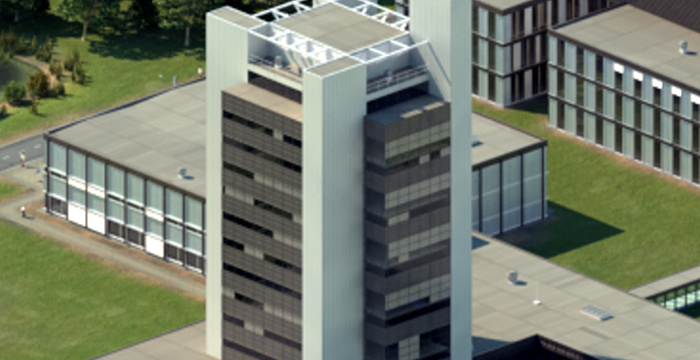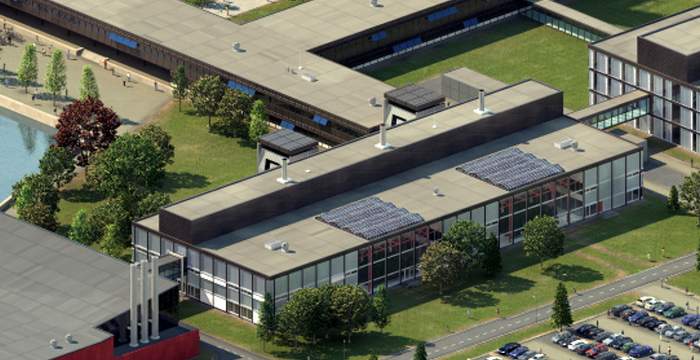I am an assistant professor in climate resilient transitions in civil engineering and management at the Integrated Project Delivery research group. Climate change necessitates substantial changes to our living environment. Climate change induced heat stress and pluvial flooding require a range of blue and green infrastructure measures in urban areas. Sea-level rise may render existing dikes obsolete and warrant flood risk management measures next to conventional water protection measures. The production of renewable energy implies numerous energy installations and substantial underground infrastructure renewal. In the meantime, post-war built viaducts require revision and maintenance in roughly the same timeframe, resulting in significant peaks in work and resource use in the next decades. These societal challenges all have fundamental implications for how our living environment is designed, planned, constructed, managed and demolished to make it climate-resilient.
As physical space is limited above and below ground in densely populated countries such as the Netherlands (or urban areas more in general), the opportunity arises to develop solutions that contribute to tackling multiple societal challenges. Such an integrative approach offers a promising perspective to address interconnected societal challenges in a coordinated, coherent way. The status quo, however, are siloed approaches potentially leading to missed out opportunities, inefficiencies, and additional construction work. In my research, I explore what mechanisms help to implement an integrative approach. Trained as a public administration scholar and now working in the Civil Engineering and Management department, I explicitly strive to bridge the gap between policy making and project level implementation. An analytical lens that I often use in this context is that of institutions. Institutions provide certainty to actor interactions and therefore are a key leverage point to facilitate transformative change.
Expertise
Economics, Econometrics and Finance
- Greenhouse Gas Emissions
- Energy Transition
Social Sciences
- Carbon
- Governance
- Netherlands
- Success
- Local Government
Computer Science
- Transitions
Organisations
- Faculty of Engineering Technology (ET)
- Civil Engineering and Management (ET-CEM)
- Climate-Resilient Infrastructure Systems (ET-CEM-CRIS)
I am driven by making our living environment resilient and sustainable. In my work I like to combine research with practice. My research interest lies in:
- energy transition
- climate change adaptation
- water management
- (polycentric) governance
- cross-sectoral collaboration
- resilient infrastructure
- institutional change
Publications
2025
2024
2023
2022
2021
Research profiles
I teach the following courses:
- Stakeholder management (Bachelor Civil Engineering, 2nd year, Module 7)
- Project Area Development (Bachelor Civil Engineering, 2nd year, Module 7)
- Transitions in Civil Engineering (Master CME/CEM)
Affiliated study programs
Courses academic year 2025/2026
Courses in the current academic year are added at the moment they are finalised in the Osiris system. Therefore it is possible that the list is not yet complete for the whole academic year.
Courses academic year 2024/2025
I am involved in the following research projects:
EU HORIZON2020 project called: “SpongeWorks: Co-creating and Upscaling Sponge Landscapes by Working with Natural Water Retention and Sustainable Management. This four-year project is an Innovation Action project, which emphasizes the actual implementation of solutions. Therefore, practice and research are strongly interwoven. SpongeWorks was initiated to lead the way for an urgently needed upscaling of ‘sponge measures’ as nature-based solutions (NbS) to boost the natural water retention capacity in European river basins, thereby making regions more resilient to impacts of climate change. SpongeWorks follows an integrative multi-actor approach to demonstrate the effectiveness of multifunctional sponge measures with soil, water quality and biodiversity co-benefits in three large-scale demonstrators in the Pinios (GR), Lèze (FR) and Vecht (NL/DE) river basins. Our role as the UT is to study and facilitate the co-creative and inclusive implementation of sponge measures.
BRIDGING GAPS AND BREAKING SILOS: in this PhD-project, we examine and develop solutions to implement an integrative approach to deal with climate change effects in the built environment. While policy makers and practitioners generally agree with the potential an integrative approach has to address interconnected societal challenges in the built evnrioment in a coordinated way, how to exactly implement such an approach is not yet know. In this project, we specifically focus on bridging the gap between actor interaction processes, organizational practices and sector-level institutional arrangements. We use dike reinforcement and nature development, and the implementation of heat grids as contexts to study these processes.
"POWER-UP: Empowering learning communities for interorganizational learning and innovation to accelerate the energy and circularity transitions": in this NWO-funded research project, we study how learning communities in the context of the energy and circularity transitions can sustain learning and innovation in order to develop the necessary human and organizational capacities for driving the energy and circularity transitions. In the project, 18 nascent and mature learning communities are studied and supported in how they can collaboratively learn and innovate to make system-level changes. We specifically focus on 1) developing methods and tools to support learning communities to learn and innovate effectively, 2) understanding and supporting strategies for the shared envisioning of pathways toward ecosystem-level changes, and 3) understanding and supporting effective practices of collaboration and transformative learning for experimenting with socio-technical challenges related to the pathways.
Current projects
Address

University of Twente
Horst Complex (building no. 20)
De Horst 2
7522 LW Enschede
Netherlands

University of Twente
Horst - Zuidhorst (building no. 28), room 224
De Horst 2
7522 LW Enschede
Netherlands
University of Twente
Horst Complex
P.O. Box 217
7500 AE Enschede
Netherlands
Organisations
- Faculty of Engineering Technology (ET)
- Civil Engineering and Management (ET-CEM)
- Climate-Resilient Infrastructure Systems (ET-CEM-CRIS)